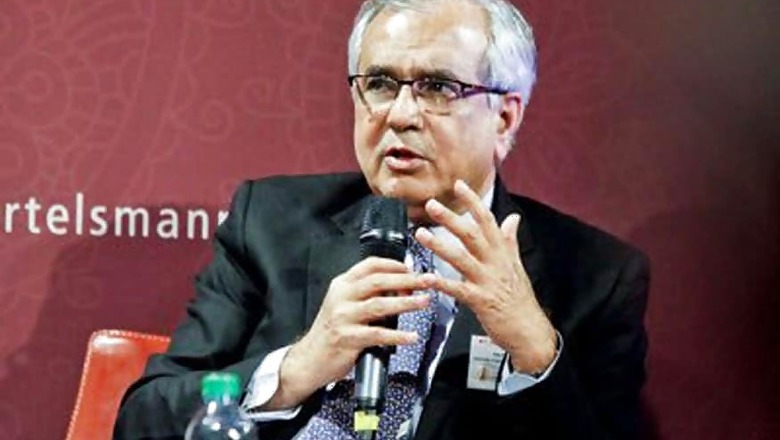
views
New Delhi: Rajiv Kumar, the new Vice Chairman of the NITI Aayog, is an economist who has served in a wide variety of roles in government, think-tanks, international organisations, industry associations and academia.
He has also written articles and books about the politics and governance of Prime Minister Narendra Modi.
Rajiv Kumar was a senior fellow at the Centre for Policy Research and an author of several books on the Indian economy. He was also the chancellor of the Gokhale Institute of Economics and Politics, Pune.
Kumar also did stints at industry bodies like the Federation of Indian Chambers of Commerce and Industry, where he was the Secretary General, and Confederation of Indian Industry, where he served as the chief economist.
But it is his books and articles that gained him wide prominence.
Modi and his Challenges, published in 2016, was a text about Prime Minister Narendra Modi. A blurb of the book from the website of CPR reads:
"Taking India by storm Prime Minister Narendra Modi has been one of the most talked about figures all around the world. His enigmatic persona and his forceful leadership have created a polarised world where some idolise him, while others question his motives and methods."
Kumar has also authored tracts on macro-economy and national interest. The latter is an outgrowth of his two-year stint on the government's nation security advisory board between 2006 and 2008.
The incoming Vice Chairman will have his hands full with providing ideas for a host of problems afflicting the Indian economy.
Foremost among them is the ongoing bad loans crisis at Indian banks. However, Kumar has authoured a paper on banking reforms and his expertise could come in handy.
His stint on the central board of directors of the State Bank of India, India's largest bank, would have equipped him with an inside view of the banking sector.
Kumar has also written about trade issues from an Indian perspective and this knowledge will be useful for crafting policy about the ongoing negotiations around the Regional Comprehensive Economic Partnership, a free trade agreement that India is negotiating with the ASEAN, China, Japan and Australia.
Apart from this, Kumar has also writer about farm loan waivers and employment generations, two other areas where the NITI Aayog will be expected to give policy recommendations on an urgent basis.
Kumar has also supported demonetisation and the scrapping of Rs 500 and Rs 1,000 notes.
He has also served as an economic adviser in the Finance Ministry and as an independent director in the Reserve Bank of India. The macroeconomics view that he would have gained in these two important stints will allow the Vice Chairman to give inputs to the government.












Comments
0 comment